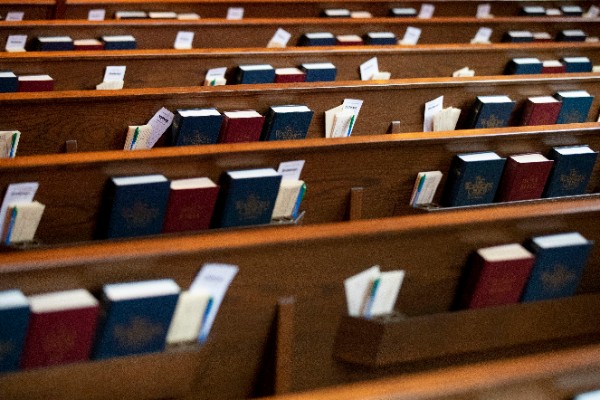The Scottish Bishops have approved the Catholic Edition of the English Standard Version (ESV) for use at Mass in the forthcoming new version of the Lectionary, replacing the Jerusalem Bible, despite concerns and ongoing debate among biblical scholars about its lack of inclusive language.
The decision, announced today, follows the Bishops’ Conference of England and Wales’ approval of the ESV for use in a new Lectionary, a controversial decision that took place among heated debate about the merits and shortcomings of both translations.
The Revised version of the New Jerusalem Bible, which was published in 2018, has been widely praised for its inclusive language and up-to-date scholarship. But proponents of the ESV say its text is more accurate, preferring more literal translation.
In a statement today Bishop Hugh Gilbert, President of the Bishops’ Conference of Scotland, said: “In reaching a decision about a translation for the Lectionary, the Bishops’ Conference of Scotland itself considered the values they would most expect a Lectionary to embody, for example, accuracy, dignity, facility of proclamation, and accessibility. It makes practical and pastoral good sense for the same translation to be used in Scotland, England and Wales.”
Biblical scholars who warned against the adoption of the ESV in England and Wales reacted with disappointment to the news.
Dr Sarah Parvis, Senior Lecturer in Patristics at the University of Edinburgh, said: “It is disappointing to learn that the Bishops of Scotland are licensing a new translation of the lectionary which still does not use inclusive language, more than thirty years after the inclusive New Revised Standard Version became available.
“They really need to consider more carefully the pastoral impact of continuing to prevent Catholic women from recognising themselves as referred to in the words of Scripture in this way. The US evangelical Protestant provenance of the ESV translation is also a concern. If they have already signed the contracts and find themselves unable to withdraw, they should at least consider licensing the preparation of a lectionary based on Dom Henry Wansbrough's Revised New Jerusalem Bible translation as well.”
Her concerns were echoed by Fr Nicholas King SJ, a fellow of Campion Hall in Oxford. “I fear this takes us back some 50 years in biblical scholarship, not to mention the use of language that excludes half the human race. It seems extraordinary that with the RNJB available and recently published an English-speaking hierarchy should not be making use of it,” he said.
The Jerusalem Bible, first published in 1966, updated in 1985 (as the New Jerusalem Bible) and 2018 (as the Revised New Jerusalem Bible), has been used in the Lectionary since 1981. Edited in its most recent forms by the distinguished biblical scholar Henry Wansbrough OSB, contributing translators included the author JRR Tolkien.
In their statement the Scottish Bishops said that “considerable progress has been made in biblical scholarship since the early 1960s when the Jerusalem Bible translation was produced.
“Re-publication of the Lectionary provides an opportunity to benefit from this new scholarship. Furthermore, readings corresponding to the many new celebrations of saints added to the General Roman Calendar since the publication of the 1981 Lectionary can be made available in a new publication of the same.”
The Catholic ESV, which was produced by the Indian Bishops’ Conference, is a very slightly amended version of the ESV. Only about 52 changes were made to the ESV text to produce the Catholic edition, the most significant of which was the inclusion of the deuterocanonical books. The ESV itself, published by Crossway, the publishing arm of the Evangelical non-profit Good News Publishing, was produced by a team of 100 scripture scholars. Fans of the translation praise its accuracy and clarity.
The work of editing and publishing the new Lectionary is expected to take several years.



 Loading ...
Loading ...